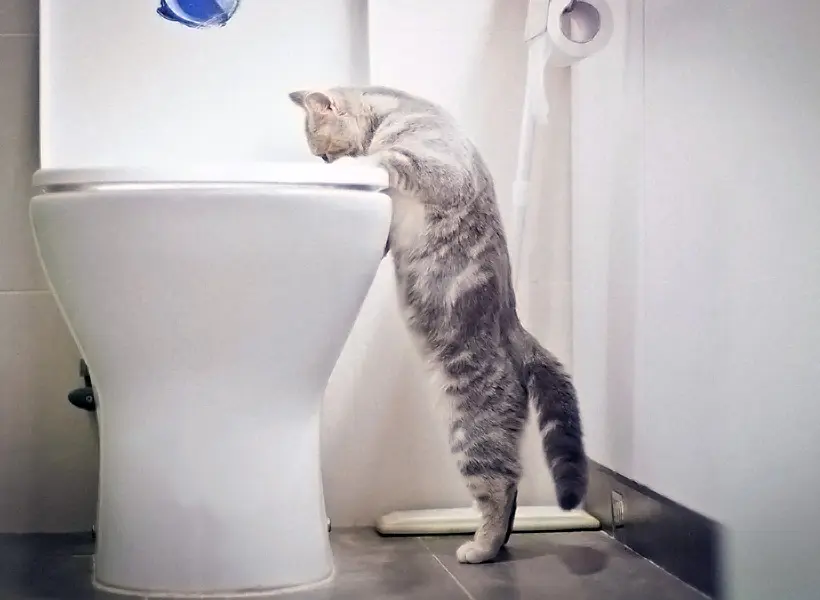Avoid Plumbing Problems: Don't Flush Cat Poop Down Your Toilet - Professional Advice
Avoid Plumbing Problems: Don't Flush Cat Poop Down Your Toilet - Professional Advice
Blog Article
Are you looking for related information around Can You Flush Cat Poop Down The Toilet??

Introduction
As feline proprietors, it's vital to bear in mind exactly how we take care of our feline buddies' waste. While it might appear hassle-free to flush feline poop down the toilet, this method can have damaging repercussions for both the setting and human wellness.
Ecological Impact
Flushing pet cat poop introduces hazardous microorganisms and bloodsuckers into the water supply, presenting a substantial threat to aquatic communities. These pollutants can adversely affect aquatic life and compromise water high quality.
Health and wellness Risks
Along with environmental worries, flushing cat waste can also pose health threats to human beings. Feline feces may contain Toxoplasma gondii, a bloodsucker that can trigger toxoplasmosis-- a potentially extreme ailment, especially for pregnant females and individuals with damaged body immune systems.
Alternatives to Flushing
Thankfully, there are more secure and much more liable methods to deal with pet cat poop. Consider the complying with choices:
1. Scoop and Dispose in Trash
The most common technique of dealing with feline poop is to scoop it right into an eco-friendly bag and throw it in the garbage. Make certain to utilize a devoted litter scoop and deal with the waste quickly.
2. Usage Biodegradable Litter
Go with naturally degradable cat trash made from products such as corn or wheat. These clutters are eco-friendly and can be securely thrown away in the garbage.
3. Hide in the Yard
If you have a yard, consider hiding pet cat waste in a marked location far from veggie yards and water resources. Make sure to dig deep adequate to avoid contamination of groundwater.
4. Set Up a Pet Waste Disposal System
Purchase an animal waste disposal system specifically designed for pet cat waste. These systems utilize enzymes to break down the waste, decreasing smell and ecological impact.
Conclusion
Liable animal possession extends beyond supplying food and shelter-- it additionally involves correct waste management. By avoiding purging cat poop down the commode and opting for different disposal approaches, we can reduce our ecological impact and protect human health and wellness.
Why Can’t I Flush Cat Poop?
It Spreads a Parasite
Cats are frequently infected with a parasite called toxoplasma gondii. The parasite causes an infection called toxoplasmosis. It is usually harmless to cats. The parasite only uses cat poop as a host for its eggs. Otherwise, the cat’s immune system usually keeps the infection at low enough levels to maintain its own health. But it does not stop the develop of eggs. These eggs are tiny and surprisingly tough. They may survive for a year before they begin to grow. But that’s the problem.
Our wastewater system is not designed to deal with toxoplasmosis eggs. Instead, most eggs will flush from your toilet into sewers and wastewater management plants. After the sewage is treated for many other harmful things in it, it is typically released into local rivers, lakes, or oceans. Here, the toxoplasmosis eggs can find new hosts, including starfish, crabs, otters, and many other wildlife. For many, this is a significant risk to their health. Toxoplasmosis can also end up infecting water sources that are important for agriculture, which means our deer, pigs, and sheep can get infected too.
Is There Risk to Humans?
There can be a risk to human life from flushing cat poop down the toilet. If you do so, the parasites from your cat’s poop can end up in shellfish, game animals, or livestock. If this meat is then served raw or undercooked, the people who eat it can get sick.
In fact, according to the CDC, 40 million people in the United States are infected with toxoplasma gondii. They get it from exposure to infected seafood, or from some kind of cat poop contamination, like drinking from a stream that is contaminated or touching anything that has come into contact with cat poop. That includes just cleaning a cat litter box.
Most people who get infected with these parasites will not develop any symptoms. However, for pregnant women or for those with compromised immune systems, the parasite can cause severe health problems.
How to Handle Cat Poop
The best way to handle cat poop is actually to clean the box more often. The eggs that the parasite sheds will not become active until one to five days after the cat poops. That means that if you clean daily, you’re much less likely to come into direct contact with infectious eggs.
That said, always dispose of cat poop in the garbage and not down the toilet. Wash your hands before and after you clean the litter box, and bring the bag of poop right outside to your garbage bins.
https://trenchlesssolutionsusa.com/why-cant-i-flush-cat-poop/

I'm certainly very eager about Don’t flush cat feces down the toilet and I hope you enjoyed the entire article. Loved our write up? Please share it. Help someone else check it out. Thanks a bunch for your time. Don't forget to check up our site back soon.
Get Your Estimate Now Report this page